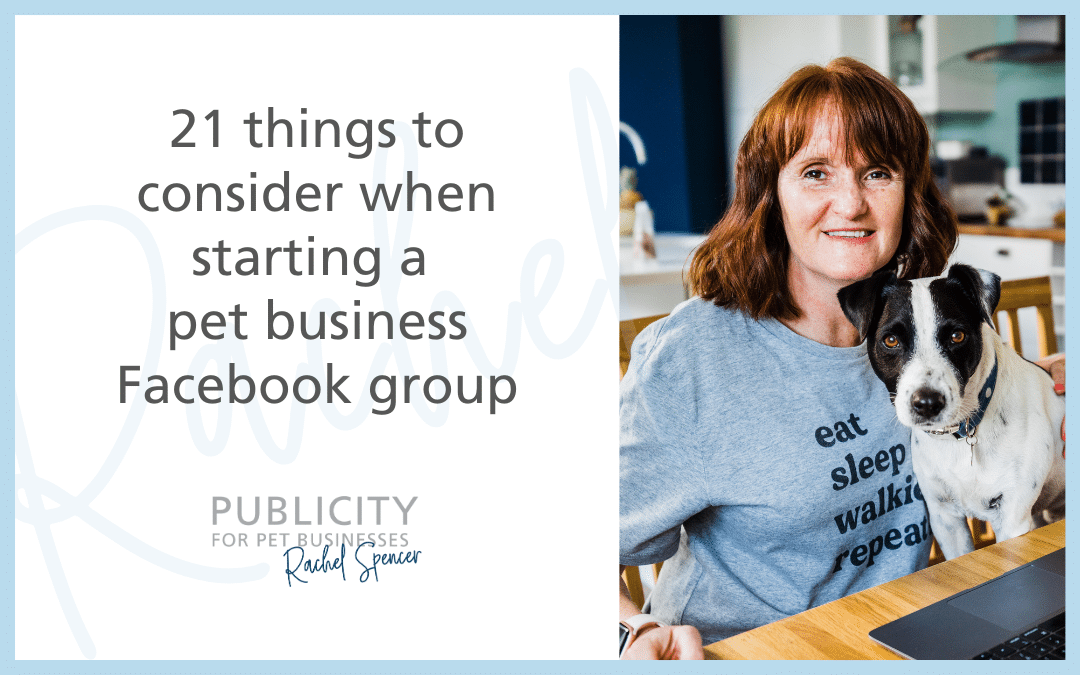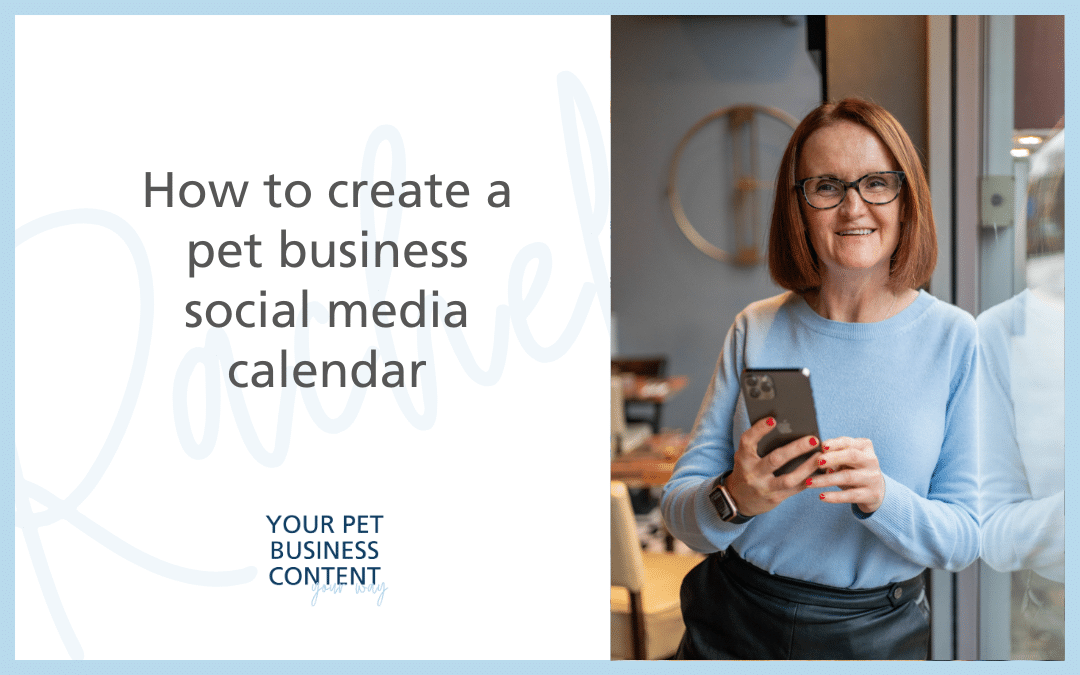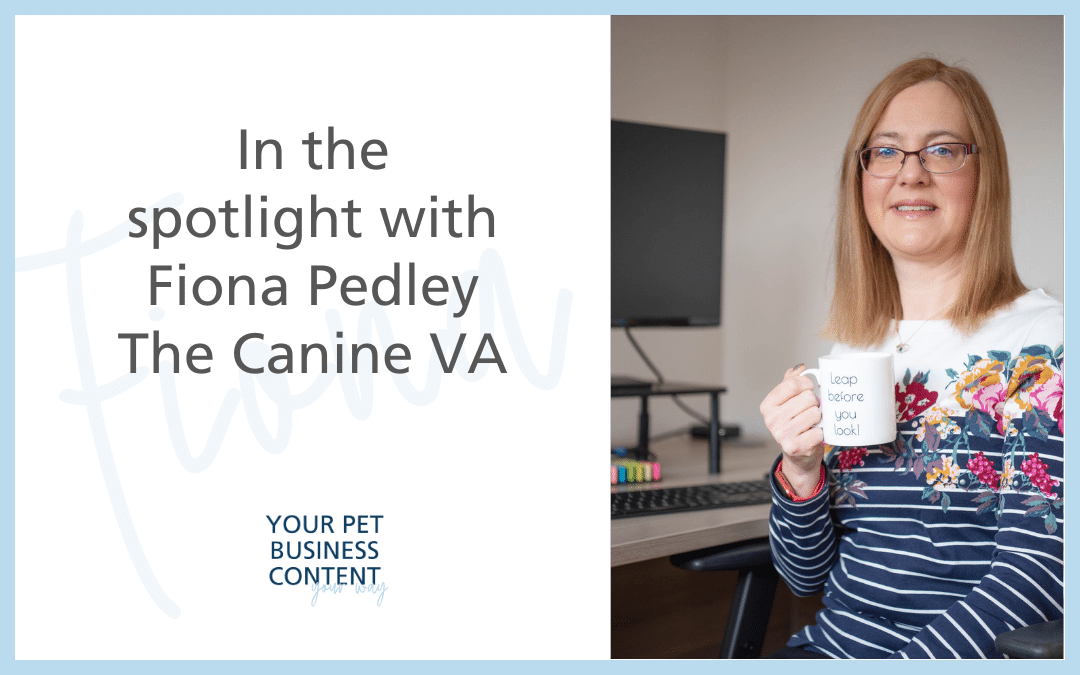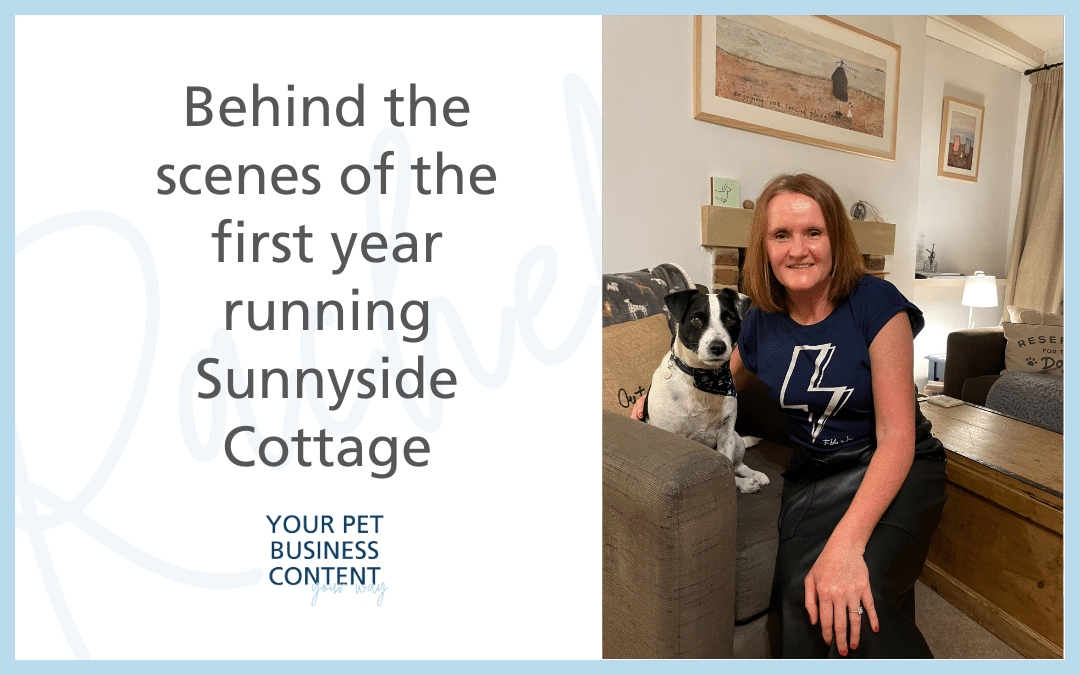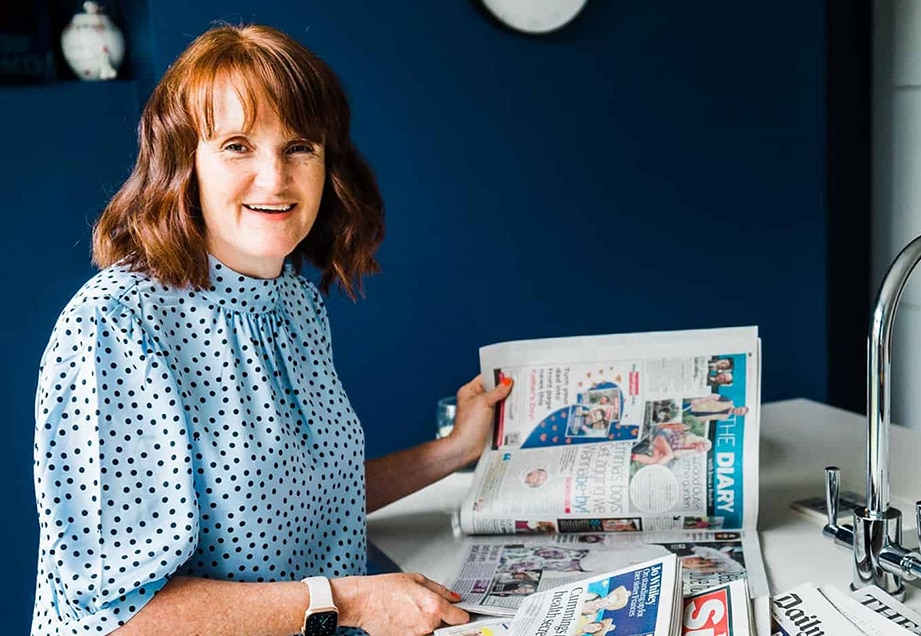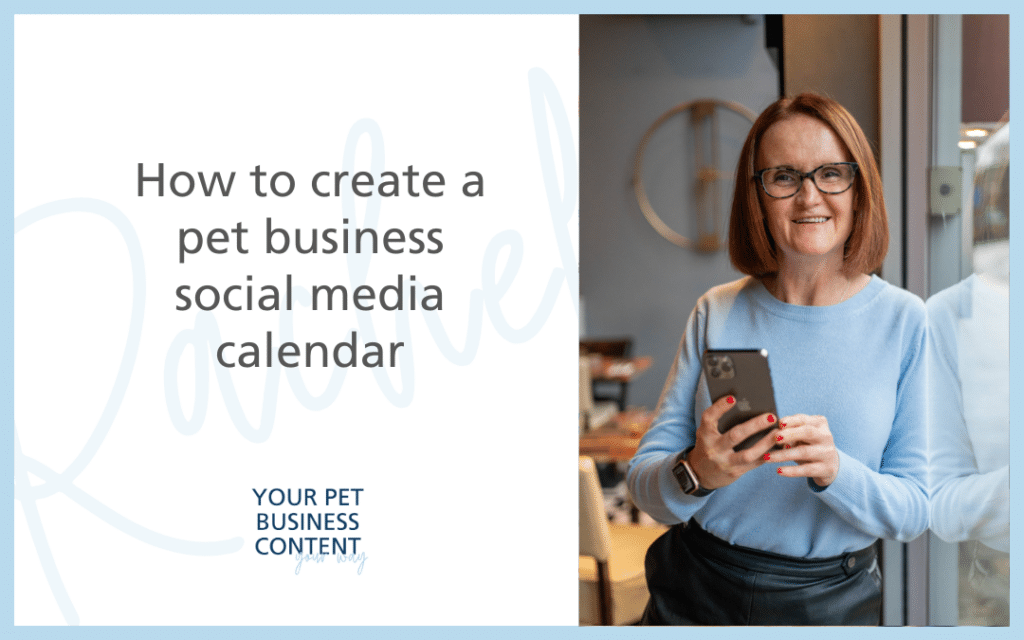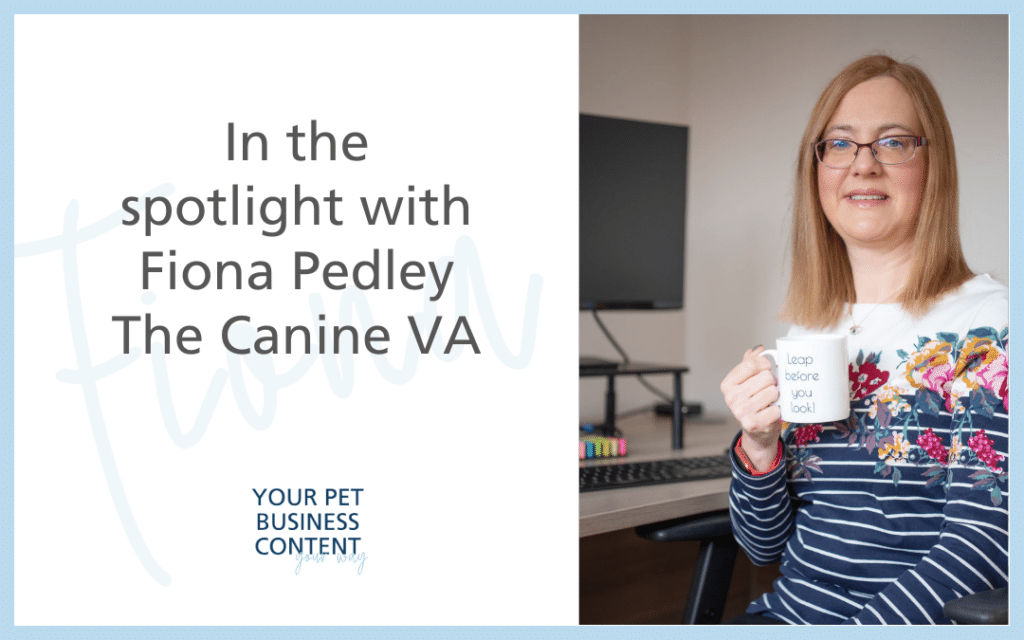Are you considering setting up a Facebook group for your pet business?
They’re a brilliant way to raise your profile, build a community, learn what your customers and clients need and make friends.
It’s a place where you can share your knowledge and expertise, find people to collaborate with and build your network and connections.
Nearly five years ago I started a Facebook group, Publicity Tips for Pet Businesses, named after the title of my book.
Since then it’s grown to over 2000 members and I’ve supported many clients with starting their groups.
In this podcast I’m sharing 21 things to consider if you’re thinking of starting a group based on my experience and the lessons from my clients.
Listen in on the player link below for the fairy tales and the scary tales on running a pet business Facebook group.
Below are the 21 things to consider, and if you’d like to connect in my Facebook group, head to the Publicity for Pet Businesses community.
- What’s the purpose? Define the purpose of the group and what you hope to achieve with it. Make this clear so people can make a swift decision about whether it’s right for them.
- What is in it for them? What do people get from being a part of your group? We are all in so many Facebook groups, the last thing we need is another. Provide a compelling reason to join.
- What’s in it for you? How is it going to benefit your business? Facebook groups take time and effort, there has to be a return on your investment too.
- Make it easy to find. Choose a name that’s easy to remember and searchable, and reflects what goes on inside the group.
- Check out your competitors. See what other groups are already out there and what they’re offering and provide something different.
- Who is it for? Creating a local community group where you chat about things happening in your area and answer questions can be a great source of leads and position you as an expert or helpful person. Think about your target audience.
- What will you offer? Consider the resources you’re going to provide for the group? Are you going to do regular lives or challenges? Can you use the group to signpost people to your existing resources like lead magnets or free training?
- What you WON’T offer. Be clear on this too. For example, if your group is about pet health, emphasise it’s not a place for diagnosis or medical advice and that users will be signposted to where they can access this.
- What privacy settings will you use? You have a choice of making your group open, private or secret, each of which impacts on how safe people will feel opening up in the community.
- What are the rules? Facebook generates them for you, but what will yours be? Your group, your rules. You set the tone and ethos of the group.Rules to consider would be around being respectful, staying on topic, no selling, no graphic content, no medical advice, no sharing of copyrighted material, and reporting issues to admin.
- The law and Facebook groups. A comment in a Facebook group can result in a libel claim so you will need to moderate your group and any members who make false or defamatory statements could lead to legal action.You’ll need to monitor content and address any potential issues or conflicts quickly and professionally.
- Your content plan. How will this work? Will there be regular discussion threads? These are helpful for engagement and people using the group.You as the group owner will need to start the discussions at the beginning then as the group grows, other people will do the work for you.
- Growing your group. How will you promote the group? Are you able to use your connections to attract people there? Consider the channels you already have such as your social media pages, newsletter, in person events, guest expert sessions.
- How much time can you commit? Running a Facebook group takes time and effort, especially in the beginning stages. Plan how much time you can realistically commit to moderating the group and engaging with members.
- Creating a safe space. Some of your time will be spent checking threads to make sure that there are no issues or arguments. Often the most innocuous thing can cause all hell to break loose in a Facebook group.
- Will you get help? Consider having someone to help with moderating if budget allows, this could be a colleague if you have a team or you can hire a VA or community manager.
- Be sensitive to world events. Thing that happen in the news will need to be considered and the impact this might have on members, and you’ll need to ensure your content is sensitive to events such as the Queen’s death, a terror attack or the war in Ukraine.
- Out means out. What will your stance be around removing people? If someone breaks your rules or behaves inappropriately, consider your process around removing them.
- Can people return? Will you let people who leave your group come back? It can feel personal when people leave so this is another decision to think about.
- The @everyone tag. Will you use it? I’ve found people can find the tag infuriating but if you’re putting the effort in to provide a community then you are within your right to use this.One option is to state that you will in the group rules and ask new members to acknowledge this when they join.
- Enjoy your group. Your Facebook group should be rewarding for you and help you in your business, so go and enjoy all the brilliant things running a Facebook group has to offer.
Want to chat about Facebook groups for pet businesses?
Come and join the conversation in my Free Facebook group, the Publicity for Pet Businesses community.
Here’s the link if you’d like to be part of it: https://www.facebook.com/groups/publicitytipsforpetbusinesses
And if you’ve enjoyed this podcast, and are interested in working together, I also have a private, smaller group for my Pets Get Visible members.
This is where you get more personalised advice, plus we have monthly coaching and forward planning calls and lots more.
Find out more and save your space here: https://publicityforpetbusinesses.mykajabi.com/pets-get-visible
If you found this post helpful, you might like How to run a Facebook group without the headache with Samantha Hill

